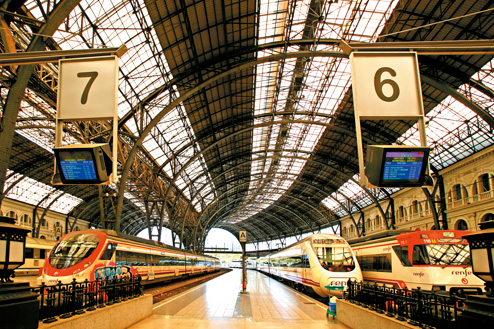Civil War & Franco
In 1931, Catalonia was again given control over its regional affairs. During the Civil War (1936-1939) Barcelona became the principle seat of Spain’s Republican government, the Popular Front. Militarily, government forces were hampered by internecine fighting between socialist, communist and anarchist factions, and disagreements between the different unions these were aligned to. Warfare ravaged the city, with eventual defeat for the Republicans at the hands of General Francisco Franco’s right-wing falangists, who were bolstered by German military support.
The President of the Generalitat, Lluís Companys, a supporter of the failed Republic, fled to France. When France was invaded by Germany, the Gestapo delivered him back to Spain and he was executed. His last words, spoken in front of the firing squad, were ‘visca (long live) Catalunya.’
Installed as dictator, Franco set about ‘reincorporating’ Catalonia into Spain. This involved public burnings of Catalan literature, the outlawing of Catalan street-names and the prohibition of the language’s use in television, radio, the press and the classroom. Outbreaks of violence followed; in 1944, there was an attempted coup by local communists, and throughout the 40s anarchists were responsible for a series of bombings, shootings and assassinations. But these achieved little, and opponents of the regime turned to peaceful public protests instead.
The President of the Generalitat, Lluís Companys, a supporter of the failed Republic, fled to France. When France was invaded by Germany, the Gestapo delivered him back to Spain and he was executed. His last words, spoken in front of the firing squad, were ‘visca (long live) Catalunya.’
Installed as dictator, Franco set about ‘reincorporating’ Catalonia into Spain. This involved public burnings of Catalan literature, the outlawing of Catalan street-names and the prohibition of the language’s use in television, radio, the press and the classroom. Outbreaks of violence followed; in 1944, there was an attempted coup by local communists, and throughout the 40s anarchists were responsible for a series of bombings, shootings and assassinations. But these achieved little, and opponents of the regime turned to peaceful public protests instead.













